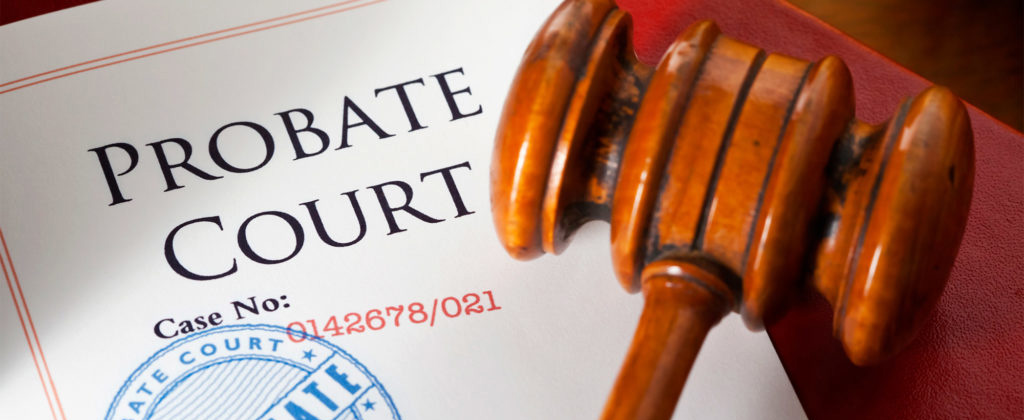
Avoid WY Probate with a Revocable Living Trust
It’s important to not only make the time for estate planning but to also make sure that your estate plan is effective. Many people make the following estate planning mistakes.
If you want to make sure that you’re prepared for the future, make sure that you don’t make the mistakes below. If you have any questions about proper estate planning, consult with a qualified estate planning attorney.
Putting Off Planning
Many people assume that they either don’t need a plan or that there will be plenty of time to plan in the future. It’s important to take the time to plan today so that you are prepared for the future.
Not Making Updates
It’s important to make updates to your estate plan. If you’ve experienced life changes, then you also need to make changes to your will so that your estate plan is current. Everyone should meet with an estate planning attorney every 3 to 5 years.
Not Having a Revocable Living Trust
A trust allows you to name how you want your asset distributed, without the need for probate. Wyoming has very good trust laws that are designed to make your life easier. Revocable Living Trusts are formed by an attorney.
Not Having a Will
A will gives you the opportunity to name a guardian for your children and decide how your assets will be distributed after your death and who will help to manage your assets. Without a will, your wishes may not be followed!

Not having a healthcare power of attorney or health care directive. If you want to have a say in important medical decisions, then you need a health care directive in place. This will allow you to decide what medical treatment and procedures you consent to. You should also name a healthcare power of attorney agent who will help to make sure that your medical wishes are followed.
Not Updating Beneficiary Designations
Certain assets such as your retirement account and life insurance policy will allow you to designate a beneficiary. The beneficiary that you name will receive these assets after your death. If you haven’t checked your designations recently, your assets may be transferred to the wrong person.
If you have any questions about what estate planning mistakes you should avoid, consult with a qualified estate planning attorney.
Probate Proceeding and Estate Planning Strategies
A probate proceeding is required within each of the 50 states to settle estates of individuals who are deceased. Probated estates are managed by a probate personal representative who is appointed within the decedent’s last Will or through court appointment when no Will exists.
The probate proceeding is governed under the Uniform Probate Code. Not all states have adopted UPC, while others have adopted only part of the code. Therefore, probate is handled according to probate laws set forth in the decedent’s state of residence.
Probate personal representatives often require assistance from an estate planner or probate attorney. The majority of estate management duties can be handled by the estate administrator to minimize legal fees. The exception to this rule is when family disputes arise over who is entitled to inheritance property and one or more heirs contest the Will.
The first step of probate involves submitting the Will to probate court. If no Will exists, a lawyer submits an original copy of the death certificate to obtain a case number. All documents submitted through probate court should include the assigned case number
The next step involves providing the estate administrator with Letters Testamentary which grant authority to manage the estate. Some states require all aspects of estate management to be supervised through the courts, while others allow unsupervised authority. Executors are informed of how probate proceedings are handled when they receive court authorization to manage the estate.
Some states require estate administrators to post a bond. In most cases, only estate administrators who reside out of state are required to post bond. The fee is paid through the estate and a record of the transaction should remain on file. Estate administrators are responsible for maintaining all financial records and transactions made on behalf of the estate.

When decedents die intestate, a probate proceeding is required to designate an estate executor. Oftentimes, this is the surviving spouse or direct lineage relative. If there is no spouse, or if family members do not want to assume estate management duties, the court can appoint an outside source to settle the estate.
The third step of the probate proceeding involves contacting creditors. If the estate is intestate, probate personal representatives must also locate and notify rightful heirs. Administrators must place a Classified ad pertaining to the decedent’s death. All efforts must be made to locate missing heirs and to settle outstanding debts.
Probate executors must open an estate bank account to record all income and expenses. When inheritance property does not transfer to a surviving spouse, Administrators must secure valuable assets and obtain property appraisals to determine date-of-death value.
If the decedent’s estate is financially incapable of paying outstanding debts, the estate executor can attempt to negotiate outstanding balances or hire a Wyoming probate lawyer to negotiate debts on behalf of the estate.
Probate executors are required to file a final tax return within 9 months from the date of death. It is best to retain the services of an accountant to prepare estate tax returns. The estate is responsible for paying taxes in full at the time of filing. Otherwise, the IRS will assess penalties and late fees against the unpaid balance.
Once all stages of the probate proceeding are completed, estate executors can distribute inheritance property according to directives of the Will or probate law. Individuals that receive inheritance gifts are required to sign a form acknowledging they received the property or money. Signed receipts are submitted to the court for approval. Once the judge signs off the estate, probate executors are released from their duties and the case is closed.